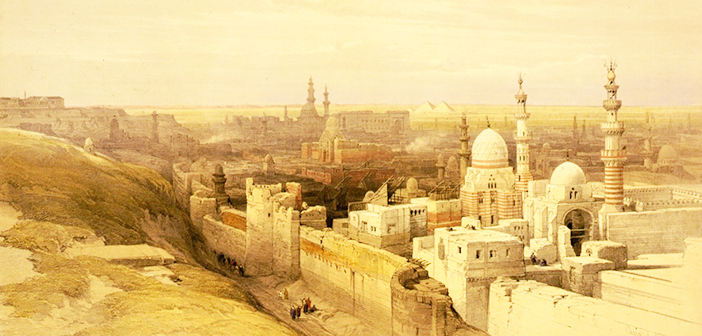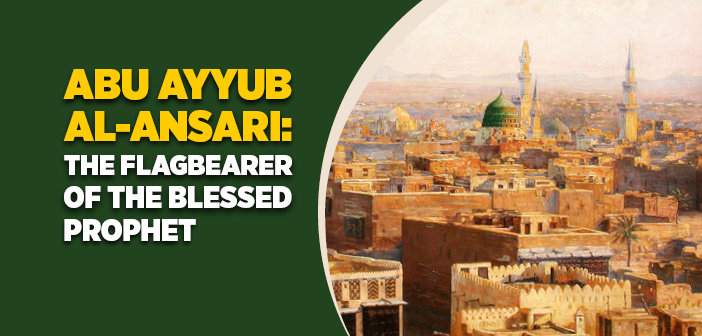What is campaign in islam? Where is the batnu nakhlah? How were islam’s campaign?
Undertaken thirteen months subsequent to the Hegira, in Rabiulawwal, the Buwat Campaign,[1] was motivated with the purpose of checking the 2500 camel caravan of Quraysh, traveling under the surveillance of 100 cavalrymen (2 Rabiulawwal / September, 623). Leaving Saad ibn Muadh -Allah be well-pleased with him- of the Ansar as deputy, the Noble Messenger -upon him blessings and peace- left Medina with a force of 200 Muslims. They eventually returned, however, without entering any conflict.[2]
The Safawan Campaign[3], also known as Badr’ul-Ula, or the Badr Minor, also took place around about the same time to bring to justice Qurz ibn Jabir, who seized and escaped with the local owned camels and oxen grazing near Mount Jamma, in the small town of Aqiq, approximately three miles away from Medina. (Rabiulawwal, 2 / September 623). Temporarily assigned as the deputy of Medina, was Zayd ibn Haritha -Allah be well-pleased with him-. Despite reaching Safawan, the Blessed Prophet -upon him blessings and peace- eventually had to return to Medina, for Qurz had long fled. Qurz later became an eminent Muslim.[4]
The month of Jamaziyalakhir saw the Dhu’l-Ushayra Campaign, (Jamaziyalakhir, 2 / November 623) leading to the signing of a peace treaty with the clan of Mudlij and their allies.[5]
In the meantime, a unit commanded by the Prophet’s -upon him blessings and peace- cousin Abdullah ibn Jahsh -Allah be well-pleased with him-, sent for exploration, struck a Meccan caravan near Batn’u Nakhlah. Rummaging for a while for the faintest excuse to raid Medina, the incident was enough to cause an upsurge of idolater emotion.
Galvanizing anti-Muslim sentiments in Mecca, the idolaters were moreover emphatically underlining the fact that the attack of their caravan had coincided with the month of Rajab, the sacred season of truce (haram), shouting, “Muhammad violated the months of truce…he shed blood, took hostages and seized our possessions!”
The Blessed Prophet -upon him blessings and peace- had in fact never ordered an attack against the caravan and admonished Abdullah -Allah be well-pleased with him-, by stating:
“I never ordered you to fight in the sacred months of truce!” What’s more, the Blessed Prophet -upon him blessings and peace- desisted from taking anything of the spoils, which threw the Companions into a state of dejection, fearing that Divine punishment was imminent.[6] But the Meccan use of the incident as material for anti-Muslim propaganda brought about the following Revelation:
“They ask you concerning the sacred month about fighting in it. Say: Fighting in it is a grave matter, and hindering men from Allah’s way and denying Him, and hindering men from the Sacred Mosque and turning its people out of it, are still graver with Allah, and persecution is graver than slaughter; and they will not cease fighting with you until they turn you back from your religion.” (al-Baqara, 217)
Relieved the most were Abdullah ibn Jahsh and his friends:
“Would we receive the same rewards, Messenger of Allah”, they asked, “as those reserved for fighters in the way of Islam?” This brought about the below Revelation:
“Surely those who believed and those who fled (their home) and strove hard in the way of Allah these hope for the mercy of Allah and Allah is Forgiving, Merciful.” (al-Baqara, 218)
Reinforcing the inner resolve of Muslims, such Divine declarations were at the same time infuriating idolaters and increasing their appetites for vengeance; though they really little needed Revelation, for they were already brimming over with hatred against Muslims, who were rapidly increasing by the day, adding further strength to the budding Islamic State. According to a census taken by the Blessed Prophet -upon him blessings and peace-, the number of male Muslims was reportedly 1500.[7] Considering that the number was only destined to further increase, it was an amount significant enough to give the idolaters plenty to think about. Medina was moreover situated by the Meccan trade route, the heart of Meccan life. Insofar as the idolaters were concerned, the danger needed subduing before it became too great to handle. So they resolved to attack Medina.
Hakam ibn Kaysan was among the prisoners taken in the attack at Batn’u Nakhlah. The Prophet of Mercy -upon him blessings and peace- invited him to Islam, explaining the way of truth many times over in all its detail, to quell any possible doubts that may arise in his mind. Annoyed at Hakam’s tenacity in rejection despite all the trouble the Blessed Prophet -upon him blessings and peace- had gone through, Omar -Allah be well-pleased with him- could not help himself:
“Why do you even bother with him, Messenger of Allah? By Allah, he will never become a Muslim. You may as well let me break his neck, so I can send him to Hell!” But the Noble Messenger -upon him blessings and peace- persisted in explaining Islam to Hakam, regardless. And this time, Hakam was all ears.
“What is Islam, again?” he asked.
“To be a servant of Allah, without ascribing any partners to Him, and to bear witness that Muhammad is His servant and Messenger.”
“Then I accept Islam”, Hakam then abruptly stated.
“Had I listened to you before”, the Messenger of Allah -upon him blessings and peace- commented turning to the Companions, “Hakam would have now been in Hellfire!”
Omar -Allah be well-pleased with him- later said:
“Seeing Hakam become a Muslim made me feel as if I had been overwhelmed by all past and entire future. I said to myself, ‘What was I thinking suggesting something to the Messenger of Allah, when he knew better?’ I then consoled myself, thinking my only intention all along was to gain the pleasure of Allah and His Messenger. Hakam did become a Muslim and what a perfect Muslim he was. He fought in the way of Allah and was martyred by the Mauna Well.” (Ibn Sad, IV, 137-138; Waqidi, I, 15-16)
Understood from this incident is the need to communicate Islam patiently, in a gentle manner, adorning it with wisdom and good advice.
[1] Buwat is a mountain among many others in the region formerly inhabited by Juwaynah, standing at a distance of 36 miles from Medina.[2] Waqidî, I, 12; Ibn Saad, II, 8-9.[3] Safawan is a valley in the vicinity of Badr.[4] Ibn Hisham, II, 238; Ibn Saad, II, 9; Ibn Athîr, Usdu’l-Ghaba, IV, 468.[5] Ibn Saad, II, 9-10.
[6] Ibn Hisham, II, 241.[7] Bukhari, Jihad, 181.
Source: Osman Nuri Topbaş, The Prophet Muhammed Mustafa the Elect II, Erkam Publications





